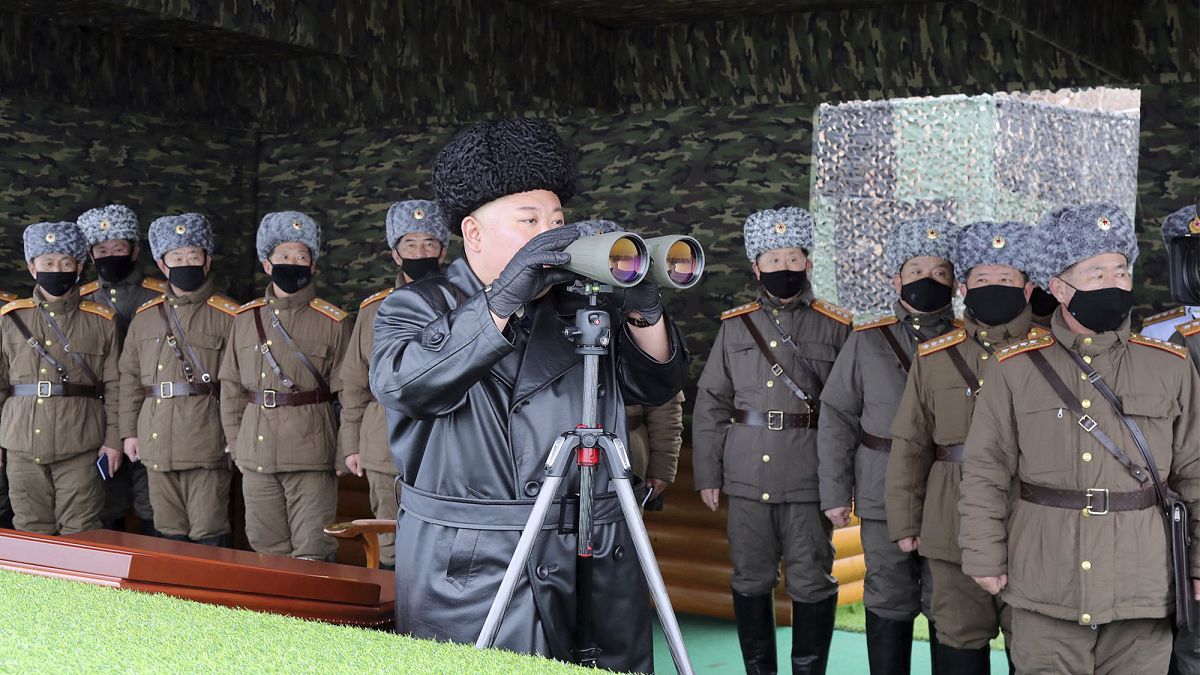North Korea says it counts zero cases of #coronavirus at home. But experts doubt that's true and fear a catastrophic health crisis, in a country where health infrastructure is insufficient and where the population is malnourished and ill-informed.
Has coronavirus reached North Korea yet? It's hard to know.
Unsurprisingly, the most secretive nation in the world has locked down all information except the regime's official version, and foreigners have been quarantined at home since early February.
According to experts, North Korea's isolation in the face of the coronavirus outbreak is its only protection. That's because the country's weak health system would struggle to contain an epidemic, they say.
"If the illness spreads, the North Korean system will be powerless", said Choi Jung-hun, a doctor who lived in North Korea before defecting to South Korea in 2012. "It will be uncontrollable."
North Korean hospitals have irregular access to water and electricity and suffer from chronic shortages of medicine.
North Korea was ranked 193 out of 195 countries in the World Sanitary Index 2019 from John Hopkins University, ahead of only Somalia and Equatorial Guinea.
Tens of thousands of people cross North Korea's porous Chinese border, which is 1,450 km long, to go to work in China each day. A substantial amount of trafficking also takes place on both sides of the border.
In December, at the start of the outbreak in Wuhan, the UN requested that China sends North Korean workers back home, but it's impossible to know how many went back to their country.
On top of this, 43% of the North Korean population suffers from malnutrition and many do not have access to drinkable water or sanitary facilities, said Tomas Ojea Quintana, the UN's special rapporteur on human rights in North Korea.
"Combined with a limited access to information, this makes them even more vulnerable to coronavirus", he said.
Newspapers call for prudence
Pyongyang authorities say the situation is under control. The official newspaper Rodong Sinmun published last Friday an article that "fortunately, the new coronavirus infection has not entered our country".
The newspaper also asked its readers for "absolute obedience" to sanitary authorities, and a few days ago warned that only one coronavirus case could have "disastrous consequences" in North Korea. It has also published calls to prudence such as avoiding public gatherings, including in restaurants.
Last week, North Korea's state news agency published two photos supposedly showing the regime's control over the virus. The first one depicted supermarket workers cleaning the premises and controlling the clients' temperature, while the second showed North Korean leader Kim Jong Un supervising the firing of an unidentified projectile. The leader wore no mask on the photo, but his aides did.
Expert '100% sure' North Korea is infected
Despite this, experts doubt North Korea's claims that it counts zero coronavirus cases. The World Health Organisation has not refuted such claims, but some South Korean media have reported infections in the North.
"I am 100% sure that North Korea has infected patients," said Nam Sung-Wook, a researcher at the Korean University in Seoul and president of the country's National Institute for Strategic Security,
Zhan Jun, the Chinese ambassador to the UN, told reporters that North Korea "suffers negatively" from coronavirus, without offering precisions.
"The fact that we know nothing about North Korea's level of infection and death rate from the virus is extremely problematic and if this doesn't change, it could have important consequences on public health," wrote Jessica Lee, East Asia expert at the Quincy Institute for Responsible Statecraft, an American think tank.
Exceptional measures
As the virus outbreak spread across the world in February, North Korea rapidly took protection measures, shutting its borders, suspending trains and planes, cancelling the Pyongyang marathon and closing schools.
People suspected to have contracted the virus were quarantined for 30 days, and all foreigners were, too.
Some economic sanctions on North Korea have also been lifted or softened by the international community. The UN Security Council has allowed humanitarian exemptions: "The coronavirus was discussed and the sanctions committee has immediately received permission to authorise the export of equipment" to fight the virus, the German ambassador to the UN, Christoph Heusgen, told AFP.
The international federation of the Red Cross has been authorised to ship medical equipment to North Korea. The Russian Foreign affairs minister, Sergey Lavrov, has said that Russia has also sent 1,500 virus detection kits to North Korea.
